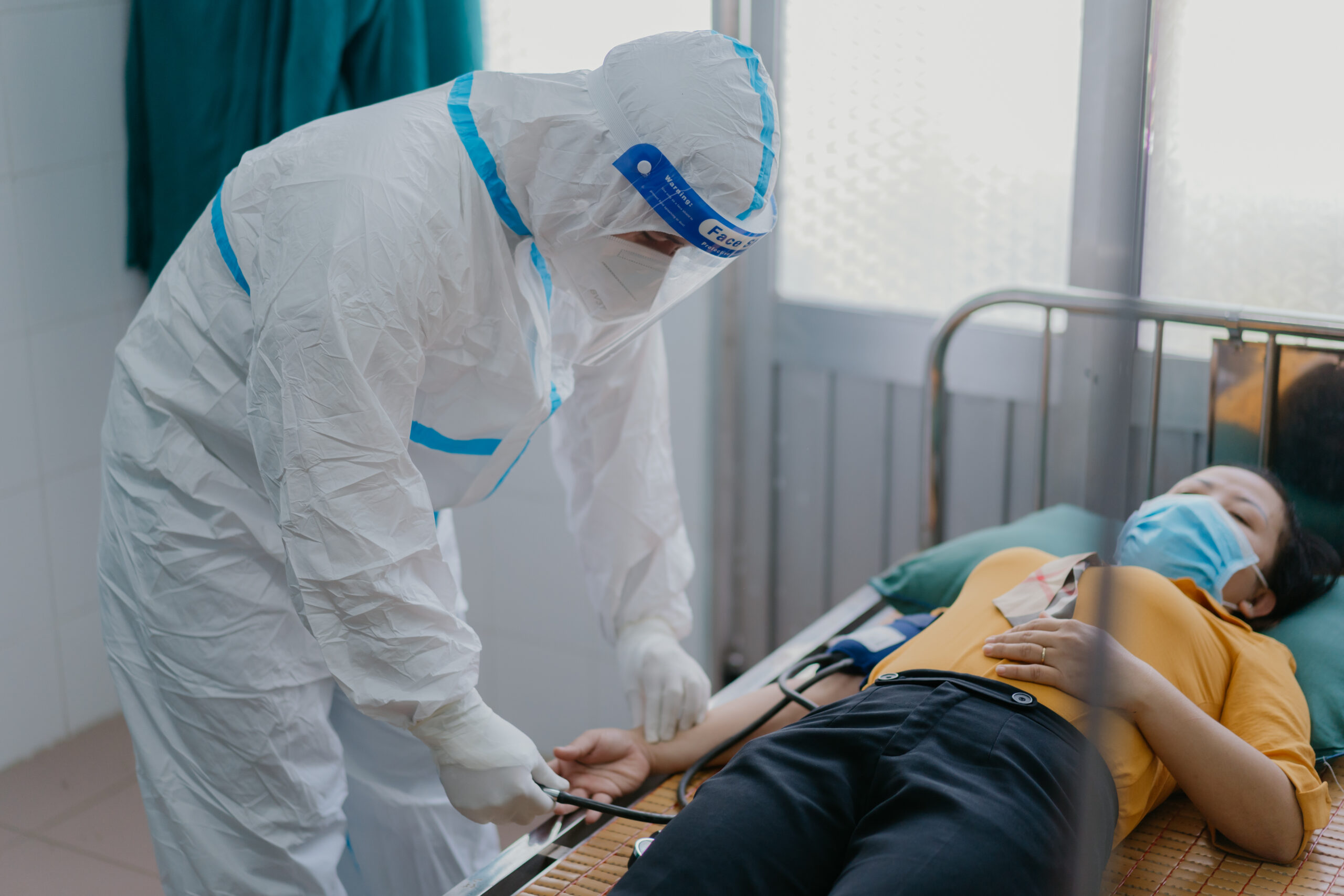Hally Mahler, HIV Department Director and EpiC Project Director, FHI 360
Andrea Surette, Knowledge Management Technical Advisor, FHI 360
Every year on December 1, World AIDS Day offers an opportunity to reflect on the progress we have made in the global HIV response and the work that remains for us to achieve and maintain HIV epidemic control. The HIV team at FHI 360 is proud of the progress and innovations we’ve advanced this year in areas such as differentiated testing and treatment models, closing viral load testing coverage gaps using the viral load value chain approach, telehealth, mental health, and pre-exposure prophylaxis scale-up. But we are also reflecting on how investments in HIV response have allowed us to contribute to the fight against COVID-19 and, more recently, mpox. In the past 20 years, the U.S. President’s Emergency Plan for AIDS Relief (PEPFAR) has invested more than $100 billion in the global HIV response, including critical investments in laboratory infrastructure, the health workforce, information systems, community-led response, strengthening civil society organizations, and expanding networks of trained peer educators and navigators. These health system pillars will remain a crucial part of global preparedness and response efforts for future pandemics. PEPFAR recognized the need to leverage its platforms to tackle other pressing global health challenges and thus selected health systems and security as the third strategic pillar of its new five-year strategy, and the United States Agency for International Development’s (USAID) Approach to HIV and Optimized Programming (AHOP) includes pandemic readiness, response, and resilience to future shocks as one of its five pathways for HIV response.
When COVID-19 emerged as a global health threat, USAID called on several FHI 360-led projects, including the Meeting Targets and Maintaining Epidemic Control (EpiC) project, to support our government partners to not only maintain essential HIV services but also respond to the COVID-19 pandemic. Since then, EpiC has leveraged the PEPFAR platform and our existing HIV programs to support COVID-19 response in 56 countries across Africa, Asia and the Pacific, and Latin America. For example:
- In Nepal, EpiC collaborated with the Ministry of Health, the World Health Organization, and other stakeholders to build surveillance and genome sequencing capacity within the National Public Health Laboratory (NPHL), resulting in the detection of the first cases of the Omicron variant in December 2021. Nepal’s increased laboratory capacity has implications for other diseases as well, with applicability in sequencing genomes for HIV, hepatitis, Japanese encephalitis, measles, and other viruses.
- EpiC leveraged the PEPFAR platform and existing service delivery infrastructure to vaccinate people living with and affected by HIV and the general population. For example, in India, EpiC supported 18 local civil society organizations that serve key populations to conduct risk communication and community engagement to promote COVID-19 vaccination among their clients and members, including people living with HIV (PLHIV), trans people, and female sex workers.
- In Indonesia, EpiC has worked throughout the pandemic to ensure continuity of HIV services for PLHIV while also increasing COVID-19 vaccination coverage among key populations and the general public. EpiC supported case managers and peer navigators to connect their clients to PLHIV-friendly vaccination sites. These efforts, coupled with demand creation and service delivery support, have resulted in the administration of 1,744,183 COVID-19 vaccine doses in Indonesia since August 2021.
- In Tanzania, EpiC collaborated with Tulonge Afya (USAID’s flagship social and behavior change project in the country, led by FHI 360) to increase demand for COVID-19 vaccination through mass media outreach and community mobilization. EpiC leveraged existing relationships with regional- and district-level local government authorities, community-based organizations, and health facilities to roll out a multifaceted COVID-19 vaccination strategy that resulted in the administration of 2,446,527 doses of COVID-19 vaccines between April and September 2022 in Njombe, Iringa, Lindi, Mtwara, and Ruvuma regions.
- In response to medical oxygen shortages during COVID-19 surges, EpiC is strengthening the medical oxygen ecosystem in eight countries by installing oxygen systems at health facilities and training staff to use and maintain the systems. EpiC was able to conduct rapid oxygen assessments in 26 countries and plan large infrastructure improvements by leveraging existing relationships with ministries of health and working directly with colleagues in health facilities. In Vietnam alone, EpiC has installed liquid oxygen systems at 13 facilities in 2022 and plans to install 10 more systems next year. EpiC is also partnering with the Clinton Health Access Initiative on a market shaping initiative that will improve the availability and affordability of liquid oxygen in Southern Africa.
We are now building on our vast experience working with key population leaders and civil society organizations to mount an effective response to mpox, which is disproportionately affecting gay and bisexual men and other men who have sex with men (MSM). MSM-led organizations that have been strengthened over the years with PEPFAR support are well positioned for this work, quickly and effectively mobilizing their communities to prevent and mitigate the impact of mpoxthrough nonjudgmental risk communication campaigns. EpiC is also working with these partners to train health care providers, including community-based teams; conduct case investigation and contact tracing; provide surveillance and other strategic information support; strengthen diagnostic capacity of health systems and providers; and improve laboratory biosafety.
On this World AIDS Day, we celebrate the public health engine that PEPFAR built. PEPFAR platforms (including data systems, supply chains, laboratory systems, management capabilities, the health workforce, and community leadership) are the foundation upon which we established and have sustained an effective HIV response for the past two decades and recently mounted a rapid and strong response to COVID-19 and mpox. We will continue to leverage PEPFAR investments to strengthen health systems, build resiliency, control the HIV epidemic, and prepare for future emerging infectious disease threats.
Featured image: A health care worker takes vital signs of a patient at a COVID-19 facility in Vietnam. Photo by EpiC Vietnam

